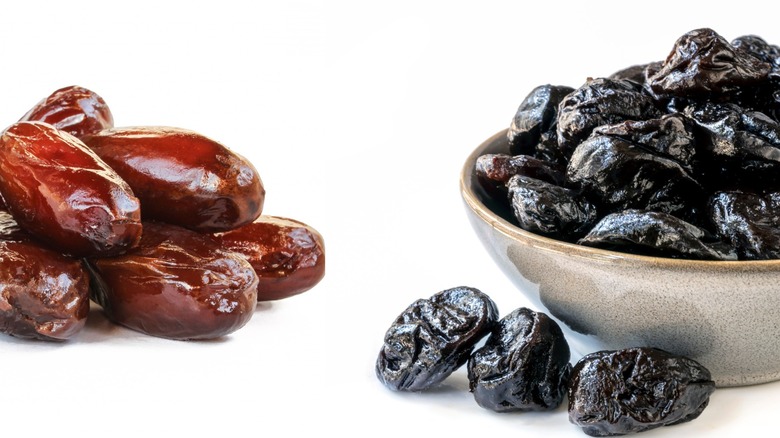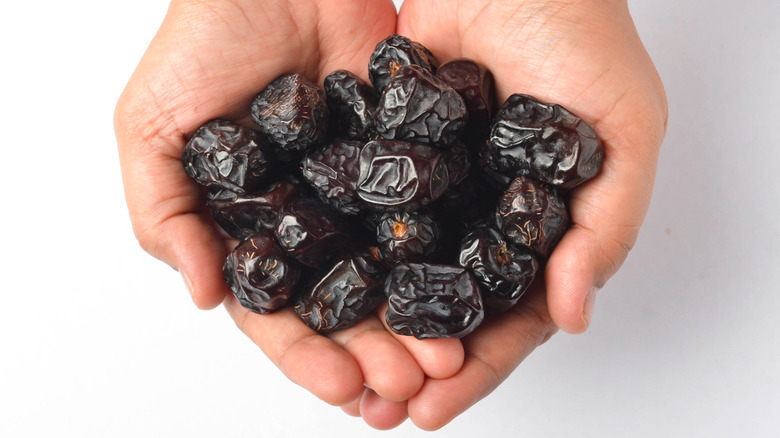Prunes Versus Dates: Which One Is Healthier?
Both prunes and dates can have a healthy place in our diets. However, choosing one over the other may come down to what your health goals are. Let's first take a look at the nutritional content of each.
A single prune contains roughly 23 calories (via WebMD). Comparatively, a single Deglet Noor date is about 20 calories (via Medical News Today). If you're looking for a snack with a little more fiber, however, you may reach for Medjool dates. If you're looking for a low-calorie, low-sugar, and low-carbohydrate option, you may opt for prunes or Deglet Noor dates instead.
It's important to keep in mind that portion sizes matter, especially with any kind of dried fruit. Overeating either dates or prunes can be counterproductive to healthy eating goals, according to SF Gate. Eating too much dried fruit, in general, may lead to gastrointestinal problems if your gut is not used to high-fiber foods.
The vitamins and minerals in prunes and dates
There is a plethora of vitamins and minerals found in dates and prunes that may have you considering their health benefits beyond just calories, sugar, and fat. Prunes contain a mineral called boron, which supports bone health and reduces the risk of developing osteoporosis. A single serving of prunes fulfills the daily recommended value of boron, according to a study published in Critical Reviews in Food Science and Nutrition. Prunes are also rich in antioxidants, specifically neochlorogenic acid and chlorogenic acid, which can protect against various diseases (via WebMD). They promote healthy gastrointestinal function and can help alleviate and prevent constipation due to soluble and insoluble fiber content, and high sorbitol content.
A 2014 study published in Alimentary Pharmacology and Therapeutics found that 3 weeks of prune consumption improved stool frequency and consistency in constipated subjects. Both dates and prunes have been found to lower bad (LDL) cholesterol by preventing cholesterol absorption in the bloodstream, thereby reducing one's overall risk of heart disease (via WebMD).
The drawbacks of eating prunes and dates
When considering the health properties of certain foods, drawbacks are just as important as benefits. While prunes can help promote healthy gastrointestinal functioning, it should also be noted that for some they can cause an increased risk of diarrhea and gastrointestinal issues, including bloating and cramping (via WebMD). Both prunes and dates also carry an increased exposure to acrylamide as well. The chemical develops in high heat when an interaction occurs between sugar and asparagine (an amino acid). It's been found in clinical studies that high levels of acrylamide cause cancer in animals, leading scientists to believe it could be a carcinogen for humans as well (via U.S. Food and Drug Administration). Choosing prunes dried at lower temperatures can prevent acrylamide exposure (via WebMD).
Lastly, because dates have higher sugar content than prunes and other fruits, portion size is key for its role in supporting a healthy diet. This is especially the case for those who need to manage blood sugar conditions, such as diabetes.



